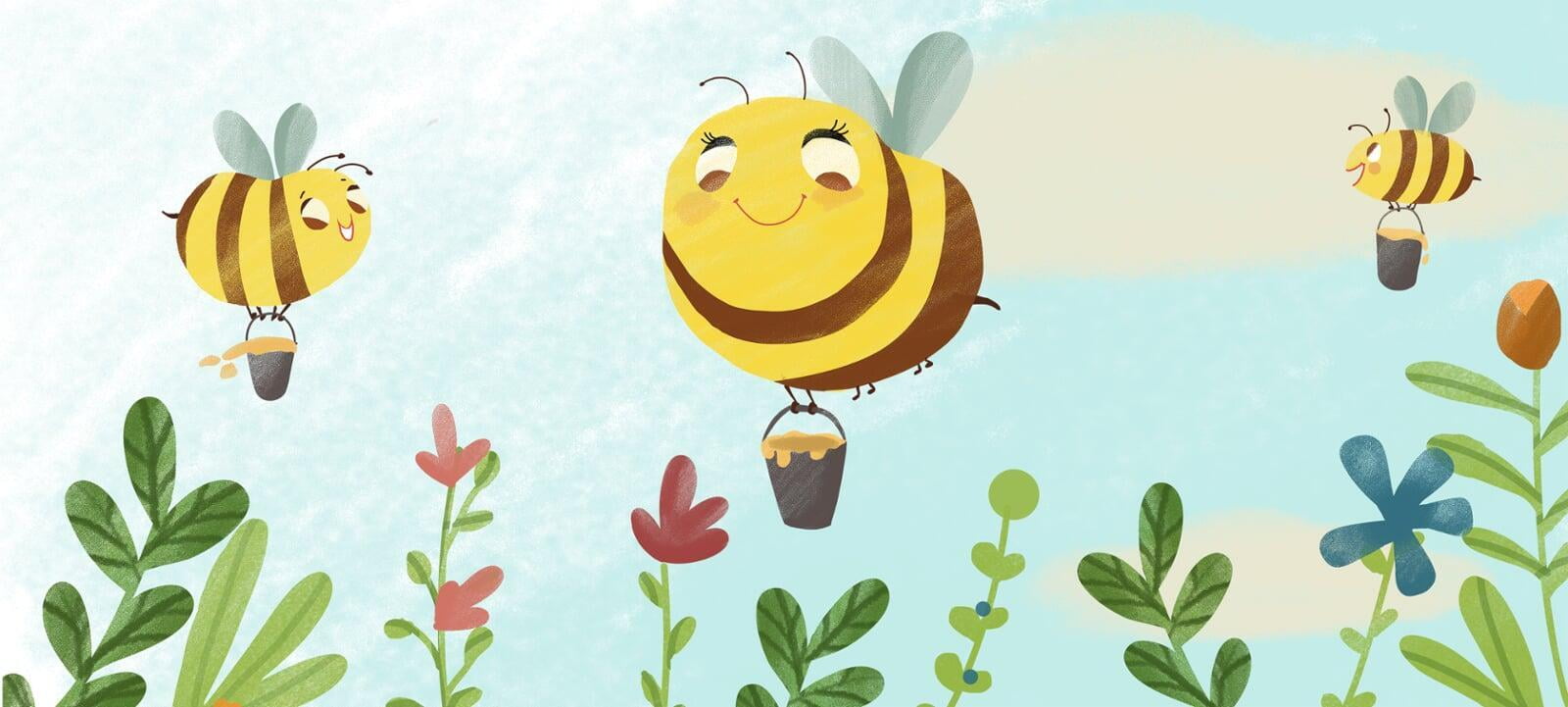
World Bee Day
Have you ever heard that without bees it would be almost impossible for humans to survive? It’s because bees are the most important pollinators in the world, essential for growing crops that we need for our food. Bees transfer pollen from flower to flower which allows plants to grow seeds and fruit.
Bees live in hives (or colonies). An average hive houses around 50,000 bees. In the hive, the most important bee is the queen bee. She lays the eggs that produce all the other bees. The female bees are called “workers” and they do the important work of pollination, whereas the male bees are called drones whose only job is to mate with the queen bee. A typical worker bee lives for about 5-6 weeks whereas a queen bee can live for up to 5 years.
Only female bees have stingers. A bee can only sting once because the stinger has barbs and it gets ripped off from the bee’s body when it stings someone.
Bees have a super sharp sense of smell. Each honey bee has about 170 odour receptors and they use these to distinguish between types of flowers and communicate with each other in the hive.
There are about 20,000 different species of bees but the type of bee we are most familiar with is the honey bee. Honey bees produce honey as a food source for themselves for the winter months. One of the reasons why vegans don’t eat honey is because of the problems with commercial farming and extraction where all the honey is taken from the hive and replaced by a sugary water for the bees which doesn’t contain the nutrients found in honey. Some advocate for “balanced beekeeping” so that humans can enjoy honey and leave some for the bees too.
Unfortunately, billions of bees around the world are disappearing. In some regions 90% of the bee population has disappeared. This is called ‘colony collapse disorder’. The reasons for this are not all known, but some scientists say it may be due to the harmful practice of commercial extraction of honey that leaves the bees ill or weak. The use of chemical pesticides and fertilizers on plants and the decline in biodiversity, especially nectar-carrying plants and flowers, is also contributing to it.
One of the things we can do is to plant a bee-friendly garden (even if it’s a few pots on our balcony) with plants such as lavender that produce the nectar bees feed on.
Voice of Tamreez Inam
Tamreez Inam works for the Emirates Literature Foundation. She is an avid reader and aspiring writer and loves talking about books on her Instagram account @tamreezi.


